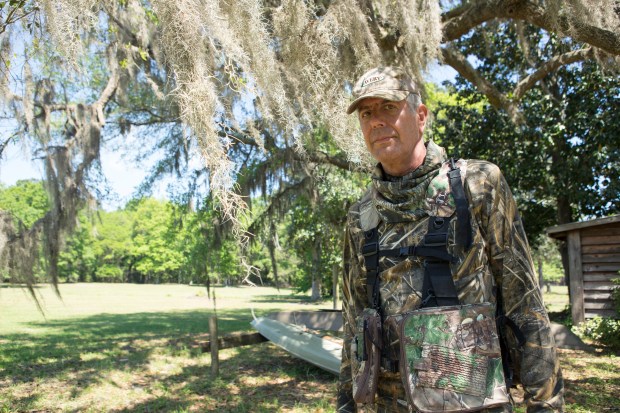Synopsis: Anthony Bourdain explores Charleston, where a new generation of chefs has been bringing Southern cuisine back to its roots. Husk executive chef Sean Brock joins Bourdain on an exploration of what Charleston’s culinary scene has to offer, from heirloom grains to slow-cooked barbecue—the two even finding time for a late-night trip to the local Waffle House.
On how Southern cuisine is changing for the better:
- “It’s gotta be a good day when they take the Caesar off the menu.”
- Bourdain: “You see Bubba Gump [Shrimp Co.], do you get angry?” Brock: “I am very angry.” Bourdain: “For me it’s Chili’s, because you see Chili’s along the Mexican border. … I really want to pull up the car, get a tire iron, and walk in and just straighten some people out.”
“Don’t come here expecting the French Laundry. Come here expecting something amazing.”
On Bourdain’s first trip to Waffle House:
- Brock: “Don’t come here expecting the French Laundry. Come here expecting something amazing.” Bourdain: “This is better than the French Laundry, man.”
- “After a few bites of waffle, a burger, a hunk of generic T-bone, and some hash browns, one feels drawn right to the center of what makes our country great: an America, f*** yeah! moment. It drives me to clamber up on the counter and start reciting Walt Whitman, ‘The Star-Spangled Banner,’ Oh say, can you see—and you know what? I doubt I’d be the first.”
- Bourdain: “You know what umami means in Japanese? Actually the literal translation of umami?” Brock: “Orgasm?” Bourdain: “No. Umami means in Japanese, literally it means ‘I will [expletive] your [expletive] for a bite of that.’”
- “I like your restaurant and all. I guess you’re some kind of good chef, but—that Waffle House. That is a phenomenon.”
On slavery and the history of Southern food:
“Fact of the matter is, in the Old South, back when the dishes, flavors, and ingredients of Southern cooking [began]—which is to say American cooking, as opposed to European—chances are that food was grown, gathered, produced, and prepared by African slaves.”
“How am I doing in the learning-to-be-a-redneck department?”
On Southern style:
- Bourdain: “I want the finest in turkey-hunting couture. I want to be ninja-like, and I want to look cool.” Hunting-store attendant: “Well, you know, camouflage is the standard go-out wear in South Carolina.” Bourdain: “I’m bringing that look to New York.”
- [To Brock] “So how am I doing in the learning-to-be-a-redneck department?”
- “The likelihood of me successfully shooting even the stupidest animal on camera is about the same as Donald Trump being gracious to anybody or Adam Sandler making a good movie.”

Guests weigh in:
- Brock: “If you look at the history of food in America, there’s no denying that Southern food was the first true cuisine that had this foundation, and that’s important to preserve. To me it goes back to the idea [that] you should be cooking and preserving and celebrating the food of your grandmother.”
- Bill Murray: “You know, I’m right on the edge here, like, telling people that [Charleston] is a really nice place to come, and really I don’t want anyone else to come. I like it the way it is.” [Addressing camera] “There’s a lot of insects. It’s really, really hot in the summer. And the traffic is worse than it ever was.”
- Bill Murray: “The standard of food around here is so high that when I go around any [other] place, I just go, ‘Eh.’”
- Ashley Green (James Island resident): “I think what happens [with slavery] is that you changed the location of the people, but you did not change who the people were.”
- Brock: “It’s been a lot of fun to watch the food scene here go from kind of what everybody else was doing to doing something very singular, very special.”